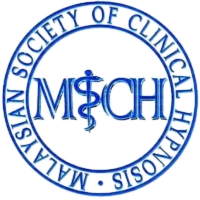What is Clinical Hypnosis
Hypnosis: Definition, Evidence, and Use Cases.

Definition
Clinical Hypnosis
Clinical hypnosis is defined as a state of focused attention, heightened suggestibility, and deep relaxation that is achieved through the use of therapeutic techniques and suggestions, aimed at accessing the subconscious mind to facilitate behavioural, emotional, and psychological changes.
Definition
Clinical Hypnotherapy
Clinical hypnotherapy is the therapeutic practice of using the state of clinical hypnosis to help clients achieve specific goals. It is a form of complementary therapy in which a qualified practitioner applies the principles of hypnosis to facilitate positive behavioural, emotional, and psychological changes.

History of Hypnosis
A Brief Introduction to Clinical Hypnosis
A Journey Through Time: The History of Clinical Hypnosis
The roots of hypnosis can be traced back to ancient civilisations, where trance-like states were integral to healing and religious rites. In ancient Egypt and Greece, these practices were conducted in "sleep temples," where patients were guided into trance to receive therapeutic suggestions and divine healing.
The scientific study of hypnosis began in the late 18th century with the work of Austrian physician Franz Mesmer. Although his theories of "animal magnetism" were later discredited, his work laid the groundwork for future scientific inquiry into the hypnotic state.
A significant turning point occurred in the mid-19th century with Scottish surgeon James Braid. Braid rejected Mesmer's mystical explanations, defining the phenomenon as a state of highly focused attention and heightened suggestibility. He coined the term "hypnosis", derived from the Greek word for sleep, and his scientific approach firmly established it as a legitimate field of study. During the same period, British surgeon James Esdaile provided compelling evidence of its medical efficacy by performing numerous surgeries in India using hypnosis as the sole form of anaesthesia, which dramatically reduced pain and mortality.
The practice was revolutionised in the 20th century by American psychiatrist Milton Erickson. His innovative approach, known as Ericksonian hypnosis, moved away from direct commands to a more nuanced, individualised use of indirect suggestions, storytelling, and metaphor. His work highlighted the importance of tailoring hypnotic techniques to the unique needs of each client.
Key figures in British and American psychiatry, such as John Hartland and Herbert Spiegel, further advanced the field. Hartland developed "ego-strengthening" techniques to reinforce self-confidence, while Spiegel created the Hypnotic Induction Profile (HIP), a standardised method to measure a person's hypnotic susceptibility.
Modern practitioners in Malaysia, like Tan Sri Dr. Mahadevan, have demonstrated the life-saving potential of hypnosis in contemporary clinical settings, helping patients manage severe anxiety, chronic pain, and other debilitating conditions. Research continues to support the efficacy of hypnosis in a wide range of applications, from managing pain and treating phobias to facilitating behavioural change.
From its ancient origins to its current evidence-based status, hypnosis has evolved into a respected and effective therapeutic tool. The contributions of these pioneers have paved the way for modern clinical hypnotherapy, which continues to unlock the full potential of the mind for healing, personal growth, and well-being.
Science Backed & Researched
The Science of Clinical Hypnosis
Hypnosis: Myth or Fact?
Hypnosis is often misrepresented in popular culture as a mysterious or mystical practice. In reality, it is a scientifically recognised and evidence-based therapeutic technique. Its legitimacy is grounded in a substantial body of research that supports its efficacy across various clinical and therapeutic settings.
The Science of Clinical Hypnosis
Clinical hypnosis is a state of highly focused attention and heightened suggestibility, allowing an individual to access their inner resources. This state is not sleep; rather, it is a deeply relaxed yet alert state of mind that we naturally enter and exit many times a day.
Research using neuroimaging, such as fMRI scans, has shown that during a hypnotic state, there are measurable and predictable changes in brain activity, particularly in areas associated with attention, emotional regulation, and pain perception. These studies confirm that hypnosis is a real phenomenon and not a passive or magical state.
Clinical and Therapeutic Applications of Hypnosis
Clinical hypnosis is a powerful tool used by qualified healthcare professionals to manage a wide range of conditions. It is particularly effective for:
Pain Management: Hypnosis helps alter the brain's perception of pain signals, making it a valuable non-pharmacological option for chronic pain, migraines, and discomfort during medical procedures.
Anxiety and Phobias: By helping clients address the root cause of their fears, hypnotherapy can reframe emotional responses and help overcome debilitating phobias.
Behavioural Change: It is highly effective in treating ingrained habits, such as smoking cessation and weight management, by helping to create new, positive thought patterns and behaviours.
Major organisations, including the American Psychological Association (APA) and the British Society of Clinical Hypnosis (BSCH), endorse hypnosis as a valid therapeutic modality. These bodies provide clear ethical standards and guidelines for practitioners, ensuring that the practice is safe, professional, and client-centred.
Evidence of Effectiveness
Clinical studies have shown that hypnosis can significantly enhance the effectiveness of other treatments. For example, it is recommended by the UK National Institute for Health and Care Excellence (NICE) for the treatment of Irritable Bowel Syndrome (IBS). It is also effective for managing stress, improving sleep, and boosting confidence. The power of hypnosis lies in its ability to empower individuals to take an active role in their own healing and transformation.
